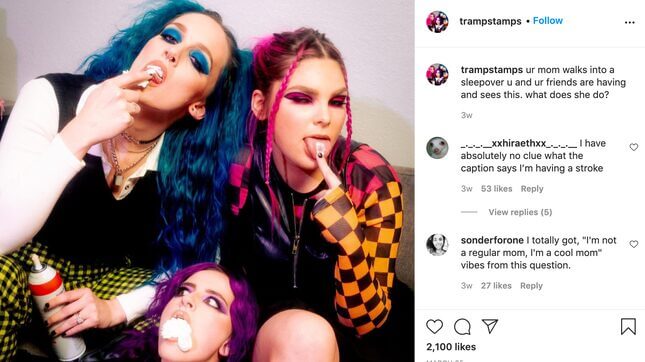

For the past several days rising Nashville rock band Tramp Stamps has been getting viciously roasted online for being what’s known as an “industry plant.” The trio, who make pop-punk about hating men, caught the wrath of TikTok users who called bullshit on the band’s Hot Topic aesthetic and sound. Tramp Stamps, which includes two songwriters signed to Dr. Luke’s music publishing company Prescription Songs, already had roots in the music industry before they started their band, and therefore, critics say, they’re “plants,” signed and manufactured by out-of-touch industry people.
-

-

-

-

-

-

-

-

-

-

-

-

-

-

-

-

-

-

-

-

-

-

-

-

-

-

-

-

-

-

-

-

-

-

-

-

-

-

-

-








































